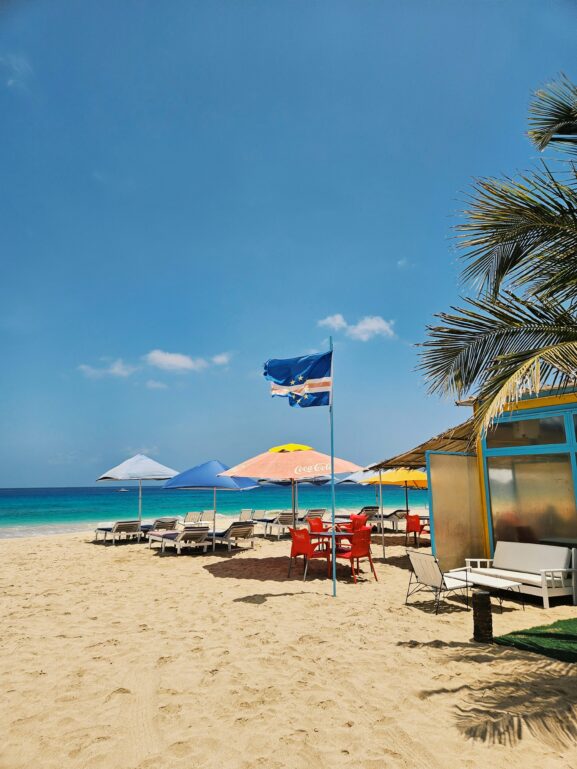History of the islands
The Cape Verde Islands were uninhabited when they were discovered in 1456 by sailors in the service of Prince Henry the Navigator. The first colonies were founded in 1461 on the main island of Santiago and the island of Fogo.
The income from the slave trade and the exploitation of salt by the British ensured that the colonies flourished. However, Cape Verde’s importance declined significantly between the 18th and 20th centuries, partly due to periods of drought that led to famine. As the forests were cut down, deserts and steppes formed and previously fertile land was lost.
Portugal lost more and more interest in the islands, as there was more to be gained in Brazil. As a result, more and more people were emigrating, especially men, to seek their fortune abroad. Desertification, volcanic eruptions and epidemics caused more misery without the Portuguese state intervening.
These experiences of emigration and loss have characterized Cape Verdean culture. In the second half of the 19th century, the literary and musical movement of mornas melancólicas emerged, a musical style in a minor key, originating in Boa Vista and often compared to Portuguese fado.
In the 1930s, Cape Verde’s economy recovered somewhat. In 1951, the Cape Verde islands became a Portuguese overseas province, which gave their inhabitants rights largely equal to those of the Portuguese on the mainland.
In 1973, for example, Guinea-Bissau and Cape Verde unilaterally declared independence from Portugal as a joint state. While the US and other anti-colonialist states quickly recognized the new country, Portugal only recognized it a year later, after the revolution in Portugal.
However, the alliance with Guinea-Bissau didn’t last long, as the cultures and opinions of the two partners were too different. This is how Cape Verde’s separation and renewed independence came about.
Today, Cape Verde is one of the few countries in Africa with a true democracy, with several parties, a parliament and a democratically elected president. Since the 2000s, the country has been focusing on tourism as an economic factor.


